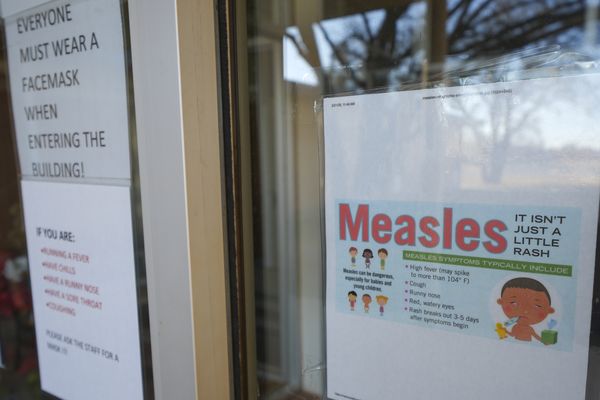
The ability to manipulate a broadsheet newspaper on a crowded commuter train is one of those skills, like full attention and mental arithmetic, mostly lost to our digital world. Louis Stettner’s photographs from the 1950s are fascinated by these images of a New York newsprint world, the ways in which ordinary Americans demanded information morning and night, as if they had a feeling that might soon be going out of style.
Many of Stettner’s pictures of that period were taken at Penn station. They contrasted with an earlier series of portraits taken on the New York subway. There, subjects had looked his camera squarely in the eye. Here, his people are mostly in worlds of their own; he liked scenes from “the smoke, fumes, the bustle” of the city, in which there were “still moments or stray corners that have sometimes touched eternity”.
This image is included in a full retrospective monograph of Stettner’s long life and career (he died in 2016, aged 93). The collection traces the ways in which he developed a profound kind of empathy. Much of this, he later suggested, dated back to being a combat photographer during the second world war, an experience that gave him a deep sense of connection with “my fellow countrymen – fishermen, industrial workers, storekeepers – whom I had previously only brushed up against in Times Square”. Stettner was among those artists who took advantage of the GI bill to be based in Paris, where he befriended celebrated photographers, including Brassaï, and his work subsequently became an important link between French and American street portraiture. You can feel him experimenting with some of that Parisian spirit in these pictures from the 50s: in his interest in a society, rather than the individual, and in a quiet love of the quotidian, of people going about their routines, alone together.
• Louis Stettner is published by Thames & Hudson on 25 July (£50). To support the Guardian and Observer order your copy at guardianbookshop.com. Delivery charges may apply







